In this series on my journey to ordination in the United Church of Christ, I’ve shared some of my experiences as a Member in Discernment.
In the last update, I shared that I submitted the final item requested from my by the North Texas Association Committee on Ministry: an ordination paper. The paper consists of three sections:
- My Theology (an exploration of what I believe)
- My Understanding of the History and Polity of the United Church of Christ
- My Ministry in the United Church of Christ (a section that integrates sections 1 and 2 into both my current ministry and future as an ordained UCC minister)
In a recent post, Learning from 9 Congregations & 10 Denominations, I shared about section one. That post features an extended excerpt on how I’ve constructed my theology through my experiences in many denominations.
Ministry in the United Church of Christ
Today, I move on to the third and final section of my ordination paper. While I’ve blogged about My Experiences with 14 UCC Congregations, this section of the paper focuses more narrowly on my call to ministry and the path I’ve taken to seek ordination in the United Church of Christ before concluding with thoughts about how I envision serving once ordained.
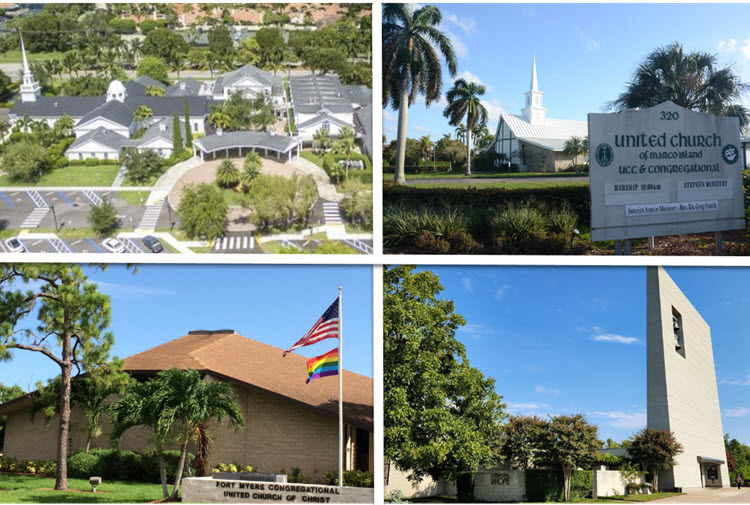
While this will be lengthier than my traditional posts, I trust that the extended excerpts will provide you a richer understanding.
Discerning My Call
As a teenager I received a call to vocational ministry. My calling was affirmed by leaders at my then girlfriend’s Baptist church and my own Presbyterian (PCUSA) congregation. As a high school senior, I preached my first sermon on a youth Sunday at First Presbyterian Church in Arlington, Texas.
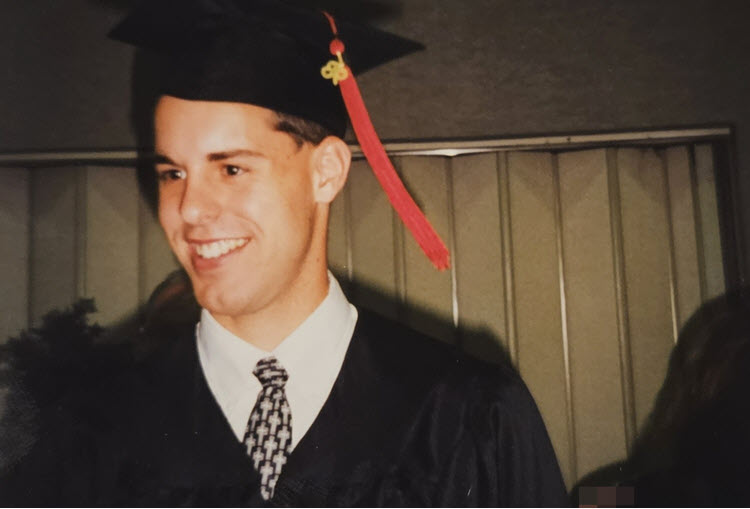
I then spent the next 30 years living in to the calling I received at age 16. This started in a traditional manner as I engaged in academic preparation for ministry by completing an undergraduate degree in ministry followed by a Master of Divinity degree. My desire to keep learning in and from diverse denominations led me to earn a seminary degree . . .
In my decade of full-time vocational ministry experience following seminary and before finding the United Church of Christ, I championed change in congregations of increasing size. I started in the Christian Church (Disciples of Christ) and focused my change efforts on building new worshipping communities . . . Then, I moved on to focus on changing discipleship – first for children and then for all ages at a Lutheran Church (ELCA) . . . then I continued with an intergenerational approach at a Presbyterian Church (PCUSA).
During this stage of my ministry, I was focused on moving the church forward. My passion for creating the future church outweighed my commitment to any given denomination. I was theologically comfortable in the big tent of Mainline Protestantism and happy to move around within it . . .
Finding the UCC in Florida
When I tell long-time United Church of Christ clergy and engaged lay folks the story of how I found my way to the denomination many have remarked that I took a roundabout way to reach a rather obvious destination. And, they are right. Almost unbelievably, I didn’t know a denomination existed that offered a big tent Mainline Protestant theology alongside a hybrid polity that emphasized local church autonomy while championing Christian unity and that had long been at the forefront of efforts to advocate for justice for all of God’s people.
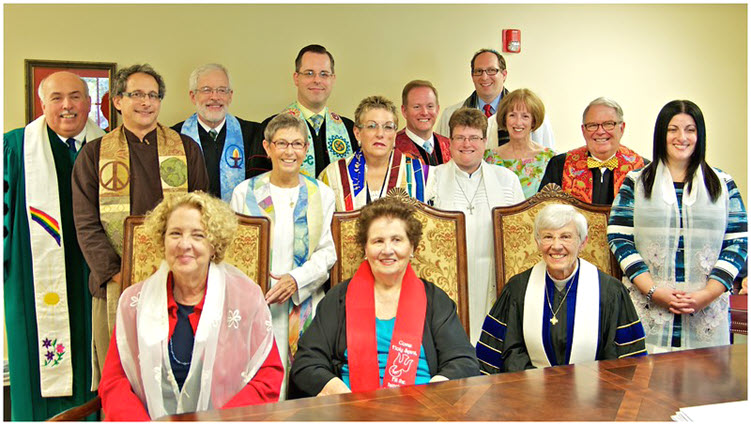
As I found my way to the United Church of Christ in 2010, I was pleasantly surprised by my initial experiences, but guarded about making my affiliation permanent. So, to begin, I sought and received ecclesiastical endorsement to serve as a UCC pastor through licensure. As a newcomer to the UCC, I brought my educational change efforts to Naples United Church of Christ before taking a step of faith to shift from creating change in siloed areas of church life to begin helping local congregations reimagine themselves as a whole by taking big bold steps toward God’s desired future as discerned by the congregation. With this new emphasis, I stepped into the role of Interim Senior Pastor at United Church of Marco Island and then as Interim Pastor at Fort Myers Congregational United Church of Christ . . .

Engaging the UCC in Texas
I relocated to Texas and, for the first and only time in my life, took my change making to corporate America. I joined a rapidly growing subsidiary of a Fortune 500 healthcare company in a role focused on developing, delivering, and scaling radical change in clinical education. While in this role, I returned to school to complete a MBA and to further grow my change making abilities. Additionally, I joined Cathedral of Hope United Church of Christ.
As I sought to integrate my passion for measurable improvement in the lives of those being served with a need to help guide a Christian organization into its desired future, I found my way to something else I had never previously considered: leading change on behalf of a faith-based non-profit organization that had been started by a local church and was in the process of growing into a mission supported by numerous churches. My initial role at the Wesley Mission Center – which later became the Mansfield Mission Center – was in social enterprise. And, in order to facilitate the organization’s biggest change yet I expanded my toolbox once again by participating in the United Church of Christ then new Adese Fellowship, which was created and sponsored by the Church Building and Loan Fund.
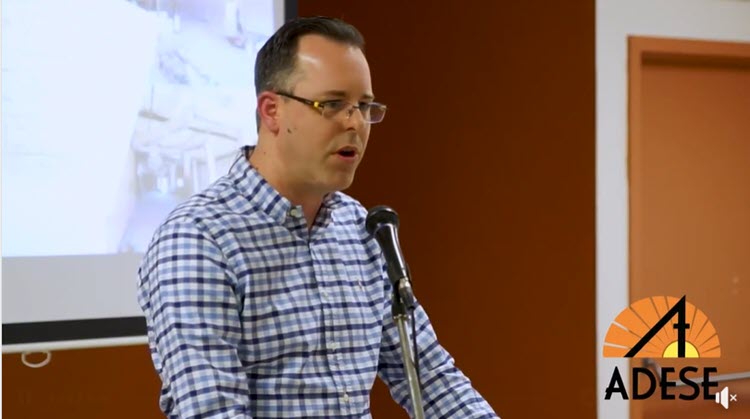
The Adese Fellowship taught me that serial entrepreneurship, visionary leadership, innovative social enterprise, and doing the work of creating a more just world is a vital part of what is needed in and beyond the United Church of Christ. And, the fellowship also introduced me to many ordained ministers engaged in this work.
Joining the UCC with Hope
A little over two years ago, I became the Executive Director of White Rock Center of Hope. This faith-based East Dallas non-profit organization was established in 1988 by a dozen local churches of varying denominations. I said “yes” to this opportunity because I knew what was possible and wanted to lead the shared work of change needed to move toward that future.
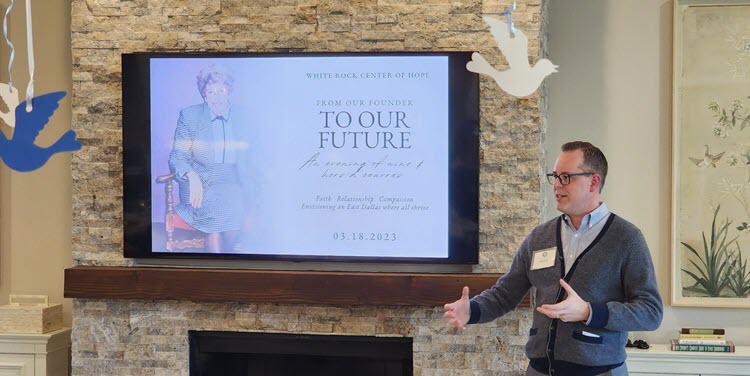
Several months into this role, I welcomed First Community Church – a local congregation from the North Texas Association – as a White Rock Center of Hope member congregation . . .
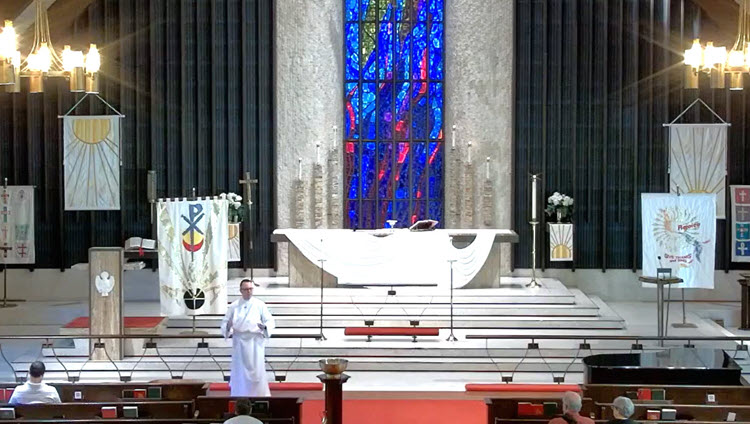
Adding First Community is a part of a larger effort to return to our roots. We are re-engaging existing member churches and other supporting churches while also intentionally developing relationships with other faith communities. More and more of my time is being spent dreaming about and beginning to make real God’s desired future for the East Dallas community we serve – a future in which all people have the opportunity to thrive.
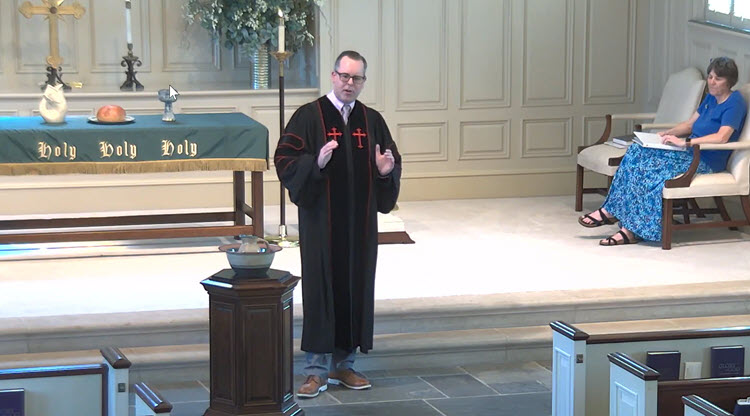
At White Rock Center of Hope everything we do is motivated by our core values of faith, relationship and compassion. This work is bigger than any one church or denomination. In my role, however, I do not approach this macro change as a person without an identity or as one with many fragmented identities, I do so as a soon-to-be ordained minister in the United Church of Christ. It is my understanding that my present role is an ordainable call and that following a successful ecclesiastical council, I will enter in to a four-way covenant between White Rock Center of Hope, Cathedral of Hope United Church of Christ, the North Texas Association, and myself.
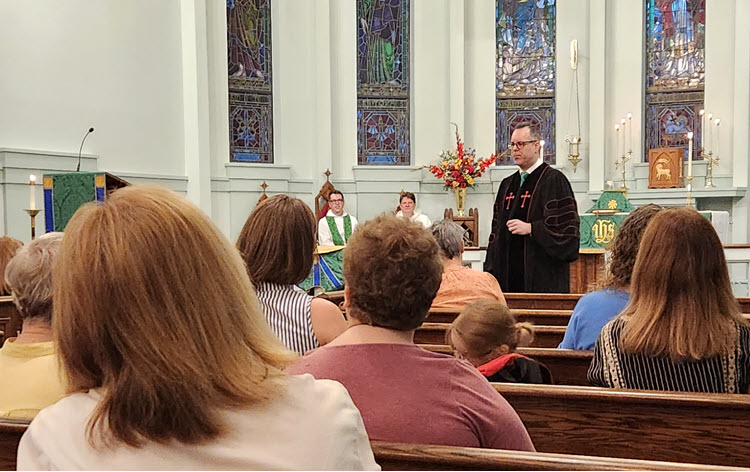
Pondering the Future
When I received a call to vocational ministry, I assumed ordination meant serving as a solo pastor, senior pastor, or associate pastor in a local congregation. I now know that serving a local church is just one of many opportunities for ordained clergy.
During my time as a Member in Discernment in the North Texas Association I’ve been asked, what will you do once you are ordained? My initial replies were correct but incomplete: more of what I’ve been doing (more blogging, more preaching and teaching, more leading social justice initiatives, and more creating the future church). My more fully formed reply is that I intend to serve the United Church of Christ faithfully using my knowledge, experiences, and commitment to building both a vibrant future church and a more just world for all. I expect that some of this work will fit within job titles that are relatively well known today and that other opportunities will emerge that have not yet been imagined. I look forward to answering the call to both/and. I am open to serving the church in all of its expressions and will always appreciate and respect the primacy of the local church.
Conclusion: Now and Forevermore
My journey of faith started in 1977. During the first chapter – from birth to age 18 – I was Presbyterian. During the second chapter – from age 19 to 32 – I was an ecumenical Mainline Protestant open to being identified by the denomination I was serving at any given time. In the third chapter – age 33 to 45 – I became part of the United Church of Christ (see God is Doing a New Thing – My Experiences in UCC Congregations). In the fourth and what I intend to be the final chapter – age 46 on – I have formalized my commitment to my chosen denomination by claiming my identity within it and seeking ordination.
With God’s help, I intend to be ordained and to continue serving in the Way of Jesus through the United Church of Christ for however long this life lasts.
So What?
I’m truly thankful to be a part of the United Church of Christ. I look forward to being ordained this fall and to the adventure that will follow.